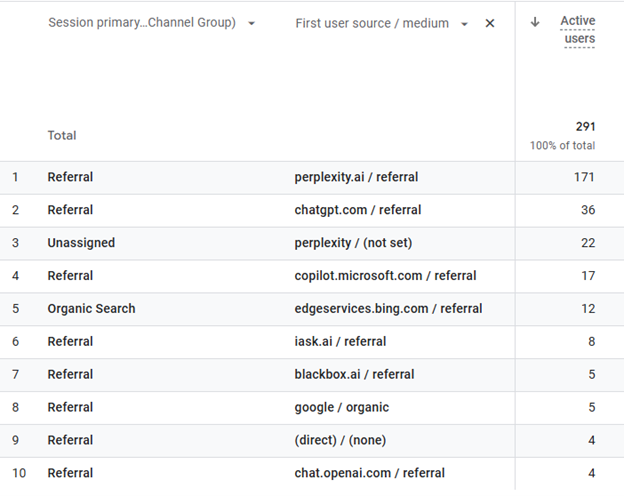Today, we’re talking about the launch of a potential industry and behavior disruptor, SearchGPT. Let’s start from the beginning.
What Is SearchGPT?
SearchGPT is an integration into ChatGPT, and its job is to bring real-time web search results (think weather, sports scores, up-to-date info), relevant answers, and links to authoritative sources. Currently, it’s only available to premium/Plus and Team users.
How Does SearchGPT Affect SEO?
SearchGPT is predicted to affect SEO in a few ways
- Google may lose market share as users increasingly turn to AI and other platforms for information.
- User behavior will evolve and change as we use AI search engines versus traditional search engines.
- SEO strategies need to expand beyond solely optimizing for Google include optimizing for AI search engines
Will they Click? Will They Not Click? That is the Question
I saw an interesting debate on Reddit about whether users will click on links provided by SearchGPT. The ‘yes’ side argues that the lack of ads will drive higher CTRs, while the ‘no’ side believes SearchGPT’s answers will be sufficient, reducing the need to click through. As always, time—and data!—will tell.
What Does This NOT Mean?
The launch of SearchGPT does not mean that people will search less. It doesn’t mean you don’t need your brand to still show up prominently and be visible where and when it matters.
How to Optimize for SearchGPT
As always, when we talk about keeping up with SEO in the AI days, we have to stress consistent, tried and true SEO best practices, introduce new tactics, and reinforce where we need to double down. Here are a few of these to keep in mind when it comes to making sure your content is visible for AI search engines like SearchGPT:
- Optimize for Bing: Since ChatGPT leverages Bing’s search capabilities for web data, optimizing for and inclusion in Bing becomes more critical than ever.
- Create information-dense content: you want content that is clear, concise, and answers the implied and explicit question/query/prompt being asked; similar to how AI overviews, or featured snippets, present information.
- Schema, Schema, Schema: from a technical perspective, Structured data helps SearchGPT understand your content better and potentially pull your information more accurately.
- First-hand knowledge content: share your unique experiences and insights, which can set you apart from larger competitors.
- Technical work includes:
- Consider updating your robots.txt file to specifically allow for OAI-SearchBot to ensure SearchGPT can index your site. However, note that if you have content behind a paywall, SearchGPT can possibly access it; also, publishers like The New York Times are specifically going the opposite way and blocking SearchGPT’s crawling bot, or at least holding out to negotiate terms.
- Improve your site structure – does your content fall into a logical hierarchy? This helps AI and web crawlers index, discover, and understand the relevance and relationships between pages on your site.
- Submit your sitemap to Bing in Bing Webmaster Tools.
- Maintain performance –SearchGPT prioritizes mobile-friendly websites with reasonable page load times. And of course, monitor and fix crawl errors to ensure your essential content is accessible.
While we know AI search is a game-changer, exactly how and to what extent, is yet to be seen.
Final pro tip: depending on the technical savviness of your organization and website’s audience, you may see, or have started seeing, referral traffic from AI platforms showing up in your GA4 referral reports. Keep an eye out for it! Here’s a good article that walks you through how to set up a filter in GA4 to review your AI referral traffic – I recommend setting your time frame to a longer period, such as 12 months back:

